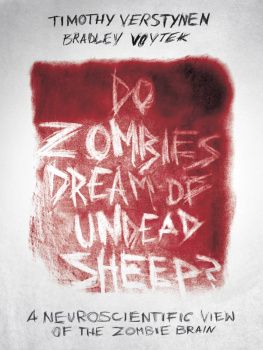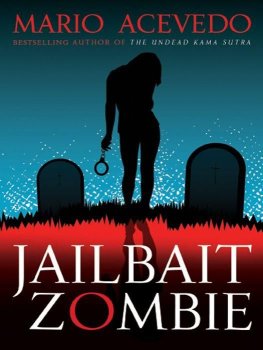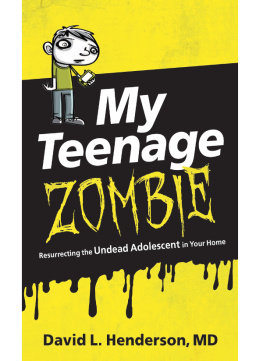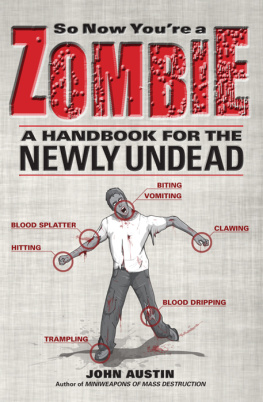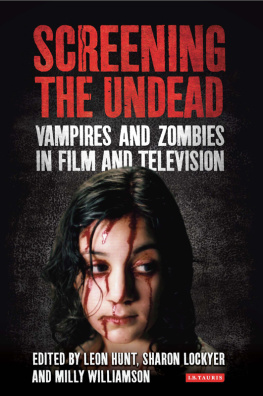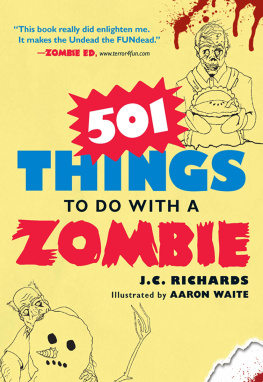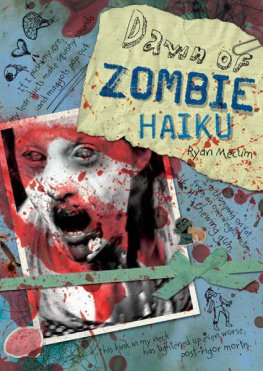
DO ZOMBIES DREAM OF UNDEAD SHEEP?
DO ZOMBIES DREAM OF UNDEAD SHEEP?
A NEUROSCIENTIFIC VIEW OF THE ZOMBIE BRAIN
TIMOTHY VERSTYNEN & BRADLEY VOYTEK
PRINCETON UNIVERSITY PRESS
PRINCETON AND OXFORD
Copyright 2014 by Princeton University Press
Published by Princeton University Press, 41 William Street, Princeton, New Jersey 08540
In the United Kingdom: Princeton University Press, 6 Oxford Street, Woodstock, Oxfordshire OX20 1TW
press.princeton.edu
Jacket design and interior by Jessica Massabrook
Library of Congress Cataloging-in-Publication Data
Verstynen, Timothy, 1978
Do zombies dream of undead sheep? : a neuroscientific view of the zombie brain / Timothy Verstynen & Bradley Voytek.
pages cm
Includes bibliographical references and index.
ISBN 9780-691157283 (hardback)
1. Neurosciences. 2. Zombies. 3. Brain. I. Voytek, Bradley,
1981 II. Title.
QP355.2.V47 2014
001.944dc23 2014011128
British Library Cataloging-in-Publication Data is available
This book has been composed in Avenir LT Std & Adobe Caslon Pro
Printed on acid-free paper.
Printed in the United States of America
10 9 8 7 6 5 4 3 2 1
FIGURES
The illustrations for this book have been created by
ANNE KARETNIKOV |
PRELUDE
SACRIFICES NOT MADE IN VAIN
This book is about science. It is about exploring the essence of what it means to be a thinking human being. Unfortunately neuroscience is a science built partly on tragedy.
Much of our understanding of the human brain comes from studying instances where an injury or malady has afflicted the brain of a living person. These individuals are not just anonymous people hidden behind initials in the medical literature, they are our loved ones. They are our parents, our spouses, our siblings, our children, and our best friends. Yet as a result of some misfortune their lives are permanently altered because damage to their central nervous system has caused them to behave, think, or perceive differently.
By studying the relationship between these injuries and subsequent changes in behavior, we can gain invaluable insights into how our brains actually work. Our evolving understanding of the human brain not only furthers basic science, but also lays the necessary foundation for the development of new therapies and (hopefully) cures. As a field we are constantly striving to squeeze every ounce of knowledge that we can from these very personal tragedies, in order to improve the world, one patient at a time.
While much of this book appears to be about zombies, it is in fact an ode to the lessons that are learned from such personal tragedies. It is an ode to the scientists who took the time to get to know their patients well enough to understand the complex ailments that impacted their everyday lives. It is an ode to those who, often by no fault of their own, suffered from a malady and yet endured to allow a stranger in a white coat to ask why and how.
INTRODUCTION
Having picked this book off the shelf, youre probably asking yourself, How could there be a neuroscience of zombies? While yes, zombies do have brains (you have to destroy their brains in order kill them, or so the myth goes), we would be hard pressed to make a case that zombie neuroscience qualifies as its own field of study. Neurosciencethe study of the brain, particularly its relationship to behavior and cognitionalready has its fair share of perhaps silly and fantastical specialty subfields; why add to the list?
Well, did you know that we neuroscientists have the answer to every thing? Regular readers of the Opinion page of the New York Times or other popular media outlets will already know that neuroscience can explain why you are in love with your iPhone, why lying to your kids about Santa is a neurologically sound form of parenting, and why inducing a coma leads to proof of heaven. You see, by filtering all of human existence through our very muddy lens we can answer all of lifes questions. By our estimates, an fMRI study explaining the meaning of life should be coming out by sometime early 2015 (hint: it involves 42 brain regions). We hate to break it to our colleagues in the fields of philosophy, religion, and physics, but thanks to a few fancy brain imaging machines and a couple of decades of pretty hard thinking about stuff, we neuroscientists now can understand everything, so theyll probably need to seek employment elsewhere.
If neuroscience is the panacea and explanation for everything else, why not the zombie apocalypse? Theres a market for that, right?
Lets return to the book you are holding in your hands. It all started one day in the summer of 2010 with a phone call from Matt Mogk, the head of the Zombie Research Society and author of Thats Not Your Mommy Anymore and Everything You Ever Wanted to Know about Zombies. Matt had seen a YouTube video of a lecture Brad had given wherein Brad mentioned how he was raised on a diet of Sega and Marvel Comics. Matt wanted to know if, given Brads double-barreled love of comic culture and brains, he would be up for exploring the nature of the zombie brain. Brad thought, Of course and I know just who to ask along on this crazy ride.
Its been all downhill for us both ever since.
We (Tim and Brad) met while working on our PhDs at the University of California, Berkeley. We briefly collaborated on a noninvasive brain stimulation project that, like many scientific experiments, led absolutely nowhere, but in the process we discovered a mutual love for zombie movies. So in addition to doing real science together, we branched out into the ridiculous world of zombies. We hope you enjoy the ridiculous, and we hope that you dont hold our real science against us.
In all seriousness, this zombie stuff has been a lot of fun. Were both geeks who also happen to be big advocates of science outreach and communication. This is a rare opportunity to combine our geek science and non-science sides. Brad has been going to the San Diego Comic Convention annually for the last decade, and off and on since he was a pimply young teen twenty years ago. Never in his life did he think that his scientific career would lend itself to speaking in front of a crowd of several hundred comic book geeks at that convention (in the same room, in fact, where he gave a real neuroscience lecture to a room of far fewer neuroscientists at the annual Society for Neuroscience Conference).Tim has been addicted to zombie movies since he first saw back-to-back features of Night of the Comet (dir. Thom Eberhardt; 1984) and Return of the Living Dead (dir. Dan OBannon; brought Tims attention to brains in the first place.
In the years that weve been talking about the biological basis of zombie behavior, weve been overwhelmed by how much people have gotten into it with us. When you have people coming up to you saying things like Im a grown man with a family and a career and you guys made me want to become a neuroscientist! or I accidentally started liking science stuff thanks to you! you know youre onto something. As scientists we spend so much time working on problems that feel disconnected from the public that its great to know were finally doing something that resonates with people. Especially if its goofy.
No, neuroscientists have no idea (biologically) what love is, or where it is stored in the brain. Neuroscience cant prove that you love your iPhone (that was a real
Next page
